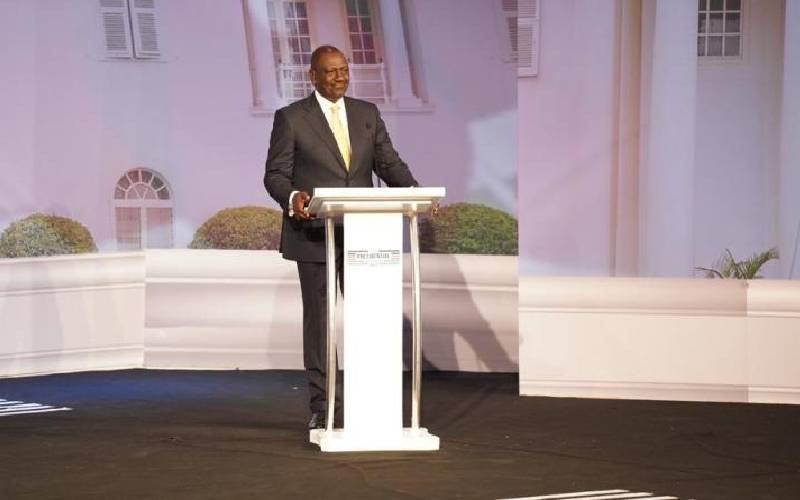Police reservists in the troubled Kerio Valley, according to Deputy President William Ruto, were withdrawn to punish him and his supporters.

During the presidential debate, the UDA Presidential candidate stated that during the Jubilee government’s first term, security in the valley, which stretches to the counties of Baringo, Elgeyo Marakwet, Pokot, and Samburu, was under control due to reservists.
“The situation was under control,” he claimed, “but when we came into the handshake agreement, a false narrative was rolled out that all these police reservists were actually a militia that [Ruto] would use at some point, and they were all withdrawn.”
Ruto described the withdrawal as reckless because it resulted in more deaths at the hands of cattle rustlers.
“The withdrawal of the national police reserve was a truly unfortunate act, but because it was intended to punish William Ruto, regardless of the fact that many people died, is a true tragedy,” he added.
While explaining his claim, the DP stated that during Jubilee’s first term, he mobilized regional leaders and held security meetings at his office, a move he claims bore fruit until the withdrawal of the reservist he claims was his idea.
He stated that his government will do whatever it takes to address the issue of insecurity, including bringing in the military to assist the police in maintaining peace in the region, claiming that it has crippled agriculture.
Some of the clashes seen in some parts of the country, according to Ruto, were caused by communities competing for resources. “We had a plan, but that plan was foiled,” he explained.
The DP also claimed that the Arror and Kimwarer dams were canceled due to political considerations. “The Kimwarer and Arror dams were intentionally canceled to punish my supporters.”
He claimed that President Uhuru Kenyatta approved the dam projects alongside others, but that only two of them failed.
According to Ruto, the contractor went to court in London demanding Sh12 billion from the project, and the Kenyan government refused to make its submissions public.
The contractor was then denied access to the land where the dams were to be built, citing it as a government undertaking.
When asked about the corruption allegations that surfaced as a result of the scandal, he stated, “I do not believe money was lost, and even if money was lost, people should be prosecuted.”


